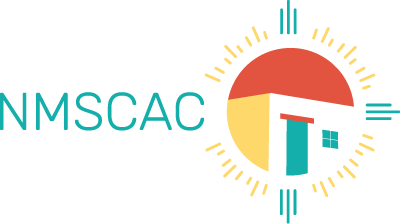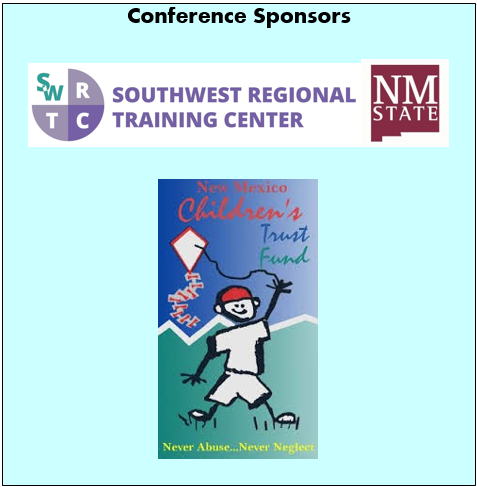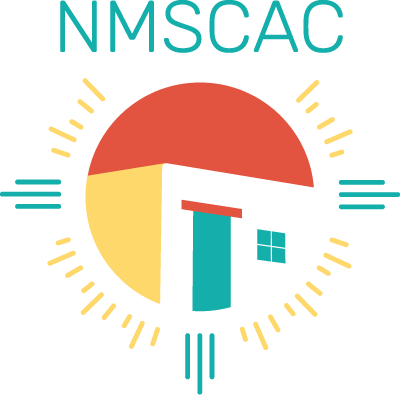National Citizen Review Panel (CRP) Conference

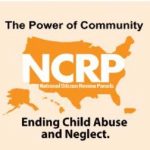
ABOUT THE CONFERENCE
The annual national citizen review panel conference brings together a diverse group of stakeholders from across the nation to share child welfare best practices, engage in solution-focused discussions to meet Child Abuse Prevention & Treatment Act mandates.
For more information on federal citizen review panels click here.
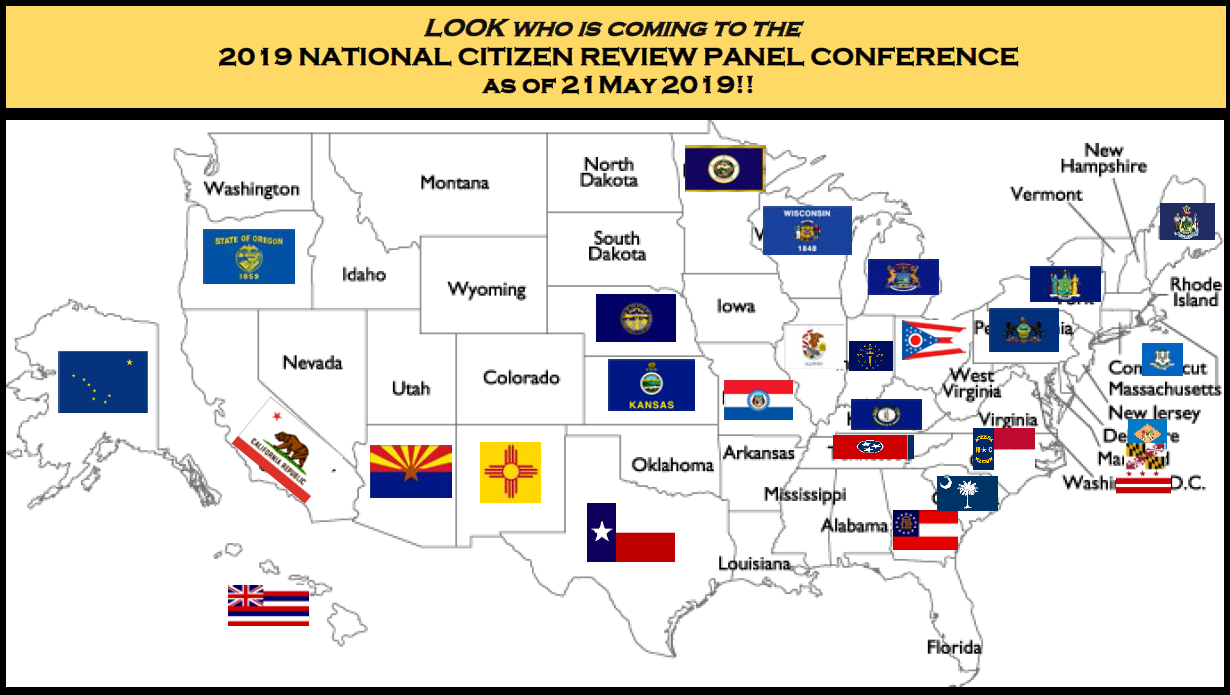
.
KEYNOTE SPEAKERS
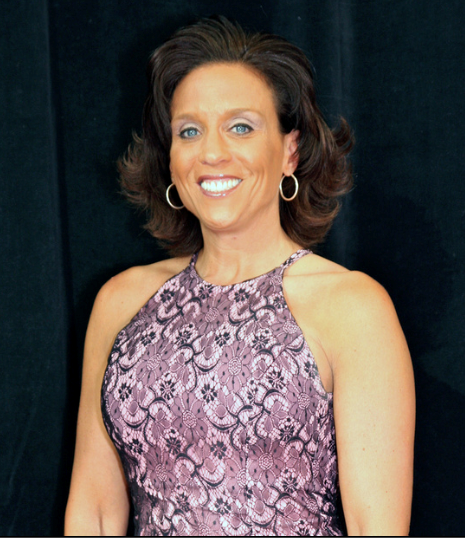
California State University, Long Beach
Ms. Dixon is known nationally for her expertise in the areas of youth trauma, child abuse and prevention, domestic violence, human trafficking and implicit bias.

President and Founder, Revitalize Project
Around the world, the Revitalize Project provides science-based strategies to assist organizations and communities to create cultures which inspire, empower and enable change.
Child & Family Program Specialist, ACF Region 6
Mr. Worsham has over 43 years of experience in child welfare including overseeing the expansion of federal support for programs.
Kate Gibbons, LCSW, Ph.D (c)

Janus, LLC Consulting and Co-Creating
Ms. Gibbons achieves organizational and system transformation through her ability to build relationships with a broad range of audiences and her national level work with Quality Service Review.
For more information contact Shelly Bucher at shelly.bucher@state.nm.us or 505.469.4781.
CONFERENCE DETAILS
This information will be updated as needed. Make sure you check here frequently for the latest information.
Dates and Times
Wednesday 5 June 2019: 4P – 6P Early Sign-In
5P – 6P Welcome Reception
Thursday 6 June 2019; 8:30A – 7P (includes opening reception)
Friday 7 June 2019; 8:30A – 5P
Saturday 8 June 2019: 8:30A – 12N
Location
Sheraton Albuquerque Uptown
2600 Louisiana Blvd, NE
Albuquerque, NM 87110
Agenda
Workshops
A Journey Through a Foster Youth’s Eyes
Members of Youth Uniting Voices, Youth Advocates (LUVYA) will share their stories regarding their experience in the New Mexico foster care system and their role in the development of New Mexico’s Fostering Connections Program (aka: extended foster care). New Mexico recently joined other states in offering extended foster care to youth. Participants will not only learn of the support provided to youth to prepare them for adulthood regardless of their permanency plan; they will learn how to involve and hear the youth who benefit from these services. PRESENTERS: LUVYA Youth, Delphine Trujillo MSW, Youth Services Bureau Chief, New Mexico Children, Youth & Families Department; Molly Clement MSW, Youth Transition Supervisor, New Mexico Children, Youth & Families Department.
A Think Tank: Substance Impaired Parents
A think tank allows for people to join around a problem to explore current practices, challenges, and opportunities. With the devastation of the Opioid epidemic and the legalization of marijuana across many states, a multi-system approach to addressing impact of all substances and the safety of children is warranted. This panel will discuss a process for exploring needs and systems of care using a citizens-informed approach. Further, this think tank invites those interested in exploring the components and opportunities for a multi-system approach to addressing substance impaired parents. Facilitators will pose several questions specific to a multi-system approach aimed at addressing the impact of substance using mothers during pregnancy and child birth, and children endangered by substance impairment parents. PRESENTERS: Dr. Tana Bridge, Professor of Social Work at Eastern Michigan University, Chair of the Michigan Governor’s Task Force on Child Abuse and Neglect; member of the Michigan Citizen Review Panel Committee; Jennifer Pintar, Detective Sergeant Michigan State Police, Chair of Michigan’s Citizen’s Review Panel; member of the Michigan Governor’s Task Force on Child Abuse and Neglect; Honorable Kelly Ramsey, Circuit Court Judge Wayne County Michigan, member of Michigan Governor’s Task Force on Child Abuse and Neglect, Citizen Review Panel, co-founder of The Seventh Generation; Lani Forbes, Executive Director Barry County MI United Way, member of Citizen Review Panel, Lieutenant Freeport Area Volunteer Fire Department.
An Introduction to the Nurtured Heart Approach
The Nurtured Heart Approach, developed by psychologist and ADHD specialist Howard Glasser, aims to shift the way we engage in relationship with children and provides strategies for breaking patterns of negative behavior while provoking innate qualities of greatness. This workshop covers the Three Stands of the Nurtured Heart Approach – Absolute No, Absolute Yes, and Absolute Clarity – to help parents and guardians think through what actions unintentionally reward negative behavior, discover new opportunities to celebrate success, and create clear boundaries so everyone is playing with a consistent and compassionate rule book. PRESENTER: Elizabeth Bennett MSW, MPH, Program Manager NMSU Southwest Regional Training Center.
An Overview of the QPR Institute Gatekeeper Training for Suicide Prevention + Counseling on Access to Lethal Means (CALM)
Early recognition of suicide warning signs is critical in saving a life. Like CPR, the more people trained in recognizing suicide warning signs the more lives may be saved. Question Persuade Refer, or QPR is a nationally recognized program which equips anyone to recognize risk and protective factors, warning signs and responses on how to get help and save a life. CALM (Counseling on Access to Lethal Means) focuses specifically on how to mitigate the risk of access to lethal means such as firearms and medication. Participants in this workshop will learn the effectiveness of both QPR and CALM in recognizing and responding to suicide warning signs and how these programs may be implemented in their communities. PRESENTERS: Victoria Waugh-Reed, MA, CCISM, Statewide Youth Suicide Prevention Coordinator, NM Department of Health Office of School and Adolescent Health, Master QPR Trainer, Certified Trainer for CALM; Shayna Klassen BA, Statewide Behavioral Health Consultant NM Department of Health Office of School and Adolescent Health, Certified Mental Health First Aid Instructor and QPR Instructor.
Child Abuse Cases from a Multidisciplinary Lens
This workshop will examine child abuse cases from a multidisciplinary perspective. The scope of law enforcement, child protection, prosecution, forensic interviewing, medicine, and mental health will be discussed. Issues and challenges from each discipline will be explored. The audience will learn about forensic interviewing, collecting medical evidence, legal issues related to investigating and prosecuting cases, and child protection intervention and services. Attendees will leave with a better understanding of how child abuse cases are handled from a multidisciplinary perspective. PRESENTER: Sueann Kenney-Noziska, LCSW, Registered Play Therapist Supervisor (RPT-S), author, instructor of play therapy, expert witness regarding the impact of trauma, dynamics of sexual abuse, delayed disclosure and other matters pertaining to childhood abuse and neglect, appointed to the Foundation Board of Directors for the Association of Play Therapy.
Childhood Sexual Abuse: What CRP Members Need to Know
This workshop is intended for members of CRPs who want to better understand childhood sexual abuse, how it occurs, why children don’t readily disclose, and how it can impact victims throughout their lifespan. Research, empirical findings, and the sexual abuse literature will be utilized to explore, dispel, and refute myths and misperceptions regarding sexual abuse. Dynamics inherent in sexual abuse will be examined and the sexual abuse disclosure process will be discussed. The short- and long-term consequences of sexual abuse will also be examined. Attendees will leave with a solid foundational understanding of childhood sexual abuse. PRESENTER: Sueann Kenney-Noziska, LCSW, Registered Play Therapist Supervisor (RPT-S), author, instructor of play therapy, expert witness regarding the impact of trauma, dynamics of sexual abuse, delayed disclosure and other matters pertaining to childhood abuse and neglect, appointed to the Foundation Board of Directors for the Association of Play Therapy.
Community Engagement Approaches to Evaluation
This workshop will introduce participants to the South Carolina CRP’s (SCCRP) current work evaluating the state’s Child Protective Services’ domestic violence and kinship care processes by engaging members of the community. Through the strategic use of kinship care circles and domestic violence round tables, the SCCRP has been able to gain valuable information and feedback with which to inform recommendations. Presenters will share the best way of determining the desired outcome of community engagement approaches and provide a framework for determining which approaches best suit the panel’s needs. PRESENTERS:
Dr. Kimberly Janha, Executive Chair South Carolina Citizen Review Panel, Coordinator Richland County Legislative Delegation Columbia, SC; Kayla Mallett, Coordinator South Carolina Citizen Review Panel.
CRP 101
Citizen Review Panels (CRPs) were formed through a 1996 amendment to the Child Abuse Prevention and Treatment Act. Citizen participation is important as it moves states toward ‘community based’ services, educates citizens about child protection and prevents an agency from becoming a system unto itself. This workshop provides an overview of the responsibilities and expectations of CRPs to meet this federal mandate. PRESENTER: Dr. Blake Jones, Lecturer University of Kentucky College of Social Work, Children’s Bureau Technical
Assistance to Citizen Review Panels.
Facilitation Tools and Techniques for Collaborative System Change
Engaging stakeholders is key to achieve the desired results of CRPs, dramatically reducing racial disparities, and improving outcomes for children and families. By using some tried and true facilitation tools and techniques, you can transform your meetings and workgroups to build consensus, create accountability, and sustain momentum for deeper reform efforts. In this interactive workshop, participants will learn and practice specific tools and techniques and leave with additional resources for further learning. PRESENTER: Erin Manske, Big Picture Research and Consulting Coordinator of California Citizen Review Panels.
Family First: Responding to the Shifting Landscape of Child Welfare
The Family First Prevention Services Act (FFPSA), a major overhaul of how the federal government funds child welfare programs, has significant implications for child welfare systems across the country. The recent passage of the FFPSA fundamentally shifts how children in and out of foster care are supported and provides opportunities for states to think about child welfare more broadly about the role of child welfare systems in preventing child abuse from occurring, intervening to stabilize families and ensuring children that are removed from their homes are raised in loving and committed families. This training will provide an overview of the changes in the law and focus on the potential impacts of the law on both our child welfare system and broader safety net programs. As each topic is discussed, the focus will be on strategies to improve access to critical supports and services for children and families. PRESENTERS: Angie Schwartz, JD, Policy Director Alliance for Children’s Rights; Brian Blalock, JD, Cabinet Secretary New Mexico Children, Youth & Families Department.
Honoring Tribal Connections by Following the Indian Child Welfare Act
The Indian Child Welfare Act (ICWA) covers any child who is either a member, or eligible to be a member, of a
federally recognized tribe/Alaska Native village. Although the principles and processes ICWA embodies have been described as the ‘gold standard’ for child welfare practice, Indian children today face many of the same issues as when ICWA was enacted over 40 years ago. This workshop demystifies ICWA and engages participants in activities that honor a child’s connection to their tribe through keeping culture at the center while attending to the physical, emotional, spiritual, and mental well-being of the child. PRESENTER: Veronica Montaño-Pilch, BS, Executive Director New Mexico Kids Matter, Inc.
How to Quickly Collect Data and Use It
In five meetings over the lunch hour, Oregon’s citizen review panels were able to select a systemic issue within child welfare, review related policies, develop a data collection plan and instrument, interview subject matter experts, review collected data, formulate recommendations, and present their findings and recommendations at a public forum. Sounds like a lot, huh? This workshop will show you how to accomplish all of these tasks with carefully prepared meeting agendas, and some work performed by the coordinator between meetings. Attendees will get to see the instruments the panels used to collect data on 1) how delays in jurisdiction and how allegations are resolved impact the bases of jurisdiction, parental engagement, and case outcomes; 2) timeliness of mental health services for children in foster care; and 3) worker engagement of parent clients. There will be discussion on how the data was presented to panel members in such a way that was easily understandable and helped them formulate recommendations. You will leave with new ideas for collecting data and structuring your panel meetings. PRESENTER: Christina Jagernauth, MPA, Assistant Director Oregon Citizen Review Foster Care Program.
Interdisciplinary Representation
New Mexico ranked 50th overall in child well-being in the Annie E. Casey Foundation’s 2018 Kids Count Report. In order to improve New Mexico’s child welfare system quality legal representation for families cannot be overlooked. The American Bar Association Center on Children and the Law, in partnership with the Administration for Children Youth and Families has recognized that access to an interdisciplinary team is a key component to quality legal representation for families involved in child welfare cases. More and more states are beginning to integrate interdisciplinary practice into their legal representation structure including: Washington, Oregon, Colorado, Massachusetts, Wyoming, and Arkansas. The model maintains a child’s significant attachment to parents and family which can reduce the emotional stress and increase likelihood a parent will stay engaged, speeds time to not only reunification but other permanency outcomes as well, ensures services are tailored to the problem that led to the placement, and makes it easier for practitioners to make accurate and informed decisions about permanency. The workshop will inform the audience of the promising outcomes and demonstrate how interdisciplinary practice currently functions in New Mexico and stakeholder leadership goals for its expansion. PRESENTERS: Sarah Jacobs, JD Court Improvement Project Director Attorney New Mexico Administrative Office of the Courts; Leslie Jones, JD, CWLS; Caitlin DiFiore, New Mexico Family Advocacy Program Lead Social Worker; Queva Hubbard, Certified Peer Support Specialist New Mexico Family Advocacy
Program.
Mindfulness: An Introduction to the Fundamentals
The newest brain research proves that mindfulness reduces stress and prevents burnout, improves cognitive functions, promotes health and a general sense of well-being, improves performance and productivity and actually changes the structure and function of the brain! Mindfulness is the capacity to be aware and is the basis for inner sustainability and leadership. Awareness gives rise to understanding, clarity, empathy and truth discerning wisdom. This fundamental human capacity is essential to any sphere of learning and can be nurtured and developed systematically through training and guidance. Come join us to learn and practice the fundamentals of this core competency and life skill. PRESENTER: Grosvenor Burnett, JD, Founder and President Institute for Applied Mindfulness, Co-Founder and Founding Teacher Vallecitos Mountain Retreat Center, Certified Mindfulness Teacher UCLA Medical School’s Mindfulness Awareness Research Center.
QSR: A Case-Based Review Methodology for Collaboration, Partnering and Shared Accountability
Quality Service Review (QSR) is a quantitative and qualitative process used to assess service delivery at multiple levels in a child welfare and protection system. QSR is also an inquiry process examining practice and system elements effecting service quality. The process occurs in “real time” with the context or understanding that each child or family, and any time, is an indication and measure of the quality of the service system. Indicators describe and measure organization and system performance based on the agency practice model or nationally recognized expectations for quality service delivery. When implemented with discipline and adherence to the model, QSR can create conditions for transformative learning and change. This workshop will present the basic QSR model, including indicators, review structure and data examples. The presentation will also provide qualitative findings and an illustration of how Qualitative Case Review (Quality Service Review) can improve practice. PRESENTER: Kate Gibbons, LCSW, Ph.D (c)
Real World Implementation of CRPs
Fresh off a redesign of the Citizen Review Panels, Ohio is beginning to settle into a routine of strategic planning, data collection, and report writing. This workshop will provide some real world examples of Ohio’s implementation of CRPs, and allow time for workshop attendees to provide feedback on their own experiences. Participants will have an opportunity to think through the best practices for carrying out the CRP duties of reviewing and evaluating child welfare practices. PRESENTERS: Sarah Parmenter, MSW, LSW Project Manager Ohio State University, second year part-time Ph.D. student Ohio State College of Social Work; Leslie McGee, MS, Program Administrator Ohio Department of Job and Family Services.
Reducing Sudden Unexpected Infant Death (SUID) Through Mandated Safe Sleep Training
This workshop provides an overview of Michigan’s enaction of the Infant Safe Sleep Act No. 122; why this Act was needed, what are the components of the Act, how this Act was implemented with lessons learned, outcomes and next steps. PRESENTER: Nicole DeWitt, MS, Special Projects Facilitator Michigan Public Health Institute Child Death Review Program.
Reviews that get Real Results: Best Practices for CRP’s
Some states have reported significant struggles working with their local child welfare office when it comes to their participation on Citizen Review Panels. Whether it be issues getting them to the table or radio silence after a CRP has submitted their report, these issues are not uncommon. Michigan’s CRP on child fatalities operates successfully because of a strong partnership with their state child welfare agency: The Michigan Department of Health and Human Service (MDHHS). Michigan’s child welfare system has been influenced by CRP recommendations and this workshop will share some of our success stories. This workshop will also share some best practices for how to get the necessary players involved to make the CRP process worthwhile and how to create reasonable recommendations that lead to actual results. PRESENTERS: Nicole DeWitt, MS, Special Projects Facilitator Michigan Public Health Institute Child Death Review Program; Seth Persky, MSW, Director Office of Family Advocate Michigan Department of Health and
Human Services.
Safety-Organized Practice
Safety-Organized Practice is an approach to day-to-day child welfare casework that is designed to help all the key stakeholders involved with a child – the parents, the extended family, the child welfare worker, supervisors, managers, lawyers, judges and other court officials, even the child him/herself – to keep a clear focus on assessing and enhancing child safety at all points in the case process. It integrates a strengths- and solution-focused child welfare practice approach with the Structured-Decision Making system – a set of research based decision-support tools – to create a rigorous child welfare practice model. PRESENTERS: Cynthia Chavers, LMSW, Federal Reporting Bureau Chief and Tribal Liaison New Mexico Children, Youth & Families Department; Camille Hancock, LMSW, Protective Services Training Director New Mexico Children, Youth & Families Department.
Strengthening Communities Through Resilience Leaders
|
Based on the book Anna Age Eight, by Dr. Katherine Courtney and Dominic Cappello, Kasandra Gandara, Las Cruces City Councilor shares her experience in organizing and facilitating a first of its kind data driven, cross sector collaborative, “Resiliency Leaders” to combat Adverse Childhood Experiences in Dona Ana County. Participants will learn how to develop a blueprint for addressing ACES in their communities by shoring up the 10 survival and thriving services and holding policy makers accountable for setting priorities to develop family friendly cities. PRESENTER: Kasandra Gandara, MSW, City Councilor Las Cruces, NM. |
Supporting the Emotional Wellness of Child Welfare Staff
For effective system change to occur, child welfare staff need to be committed to the process, feel supported in their efforts, and acknowledged for the critical role they play in transforming a system of care. This workshop will focus on Secondary Traumatic Stress (STS); what it is, what it looks like and what can be done to alleviate its symptoms. This workshop will also look at factors that make child welfare staff vulnerable to STS and how Citizen Review Panels can support and acknowledge their work. PRESENTERS: Julie Jensen, LCSW; Allison Ritchie, Foster Care Provider Marathon County WI; Chair Marathon County Citizen Review Panel, Trauma informed Parenting Trainer.
The Impact of Changing Immigration Policy on Child Well-Being and Child Welfare
This workshop will review key immigration policies that impact children and families. It will also discuss the risks and symptoms of stress and trauma in children of immigrants, and provide examples of appropriate responses to these children. Guidance will be offered for service providers and systems, especially the child welfare system, to lessen the damage to children in immigrant families. Strategies include cross-systems collaborations, legislative and policy advocacy, utilizing existing resources and supports, implementing clear agency policies and procedures for work with immigrant families, and developing alternative, positive narratives in support of immigrant children and families. PRESENTER: Sophia Sepp, MSW, MPH, Center on Immigration & Child Welfare, New Mexico State University.
Transgender 101
This workshop is an introduction to a population that is not known or understood by others. Increasing this knowledge will result in better system responses. Participants will have an opportunity to examine the cultural norms and expectations surrounding gender and sexuality, have questions answered and engage in dialogue for strategies to decrease the discrimination, fear, hostility and violence that is routinely directed towards transgender people. PRESENTER: Adrien Lawyer, Co-Director and Co-Founder Transgender Resource Center of New Mexico.
